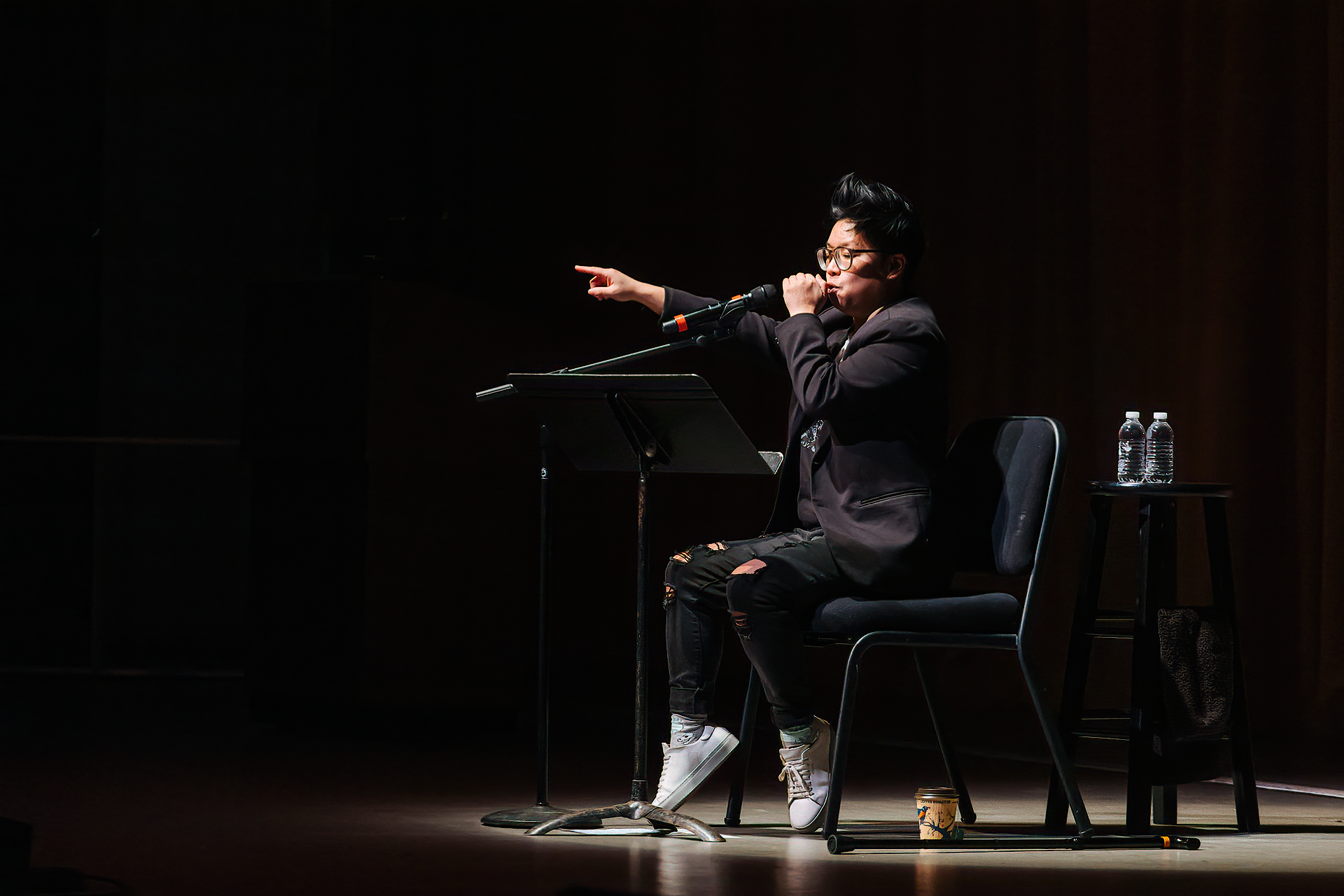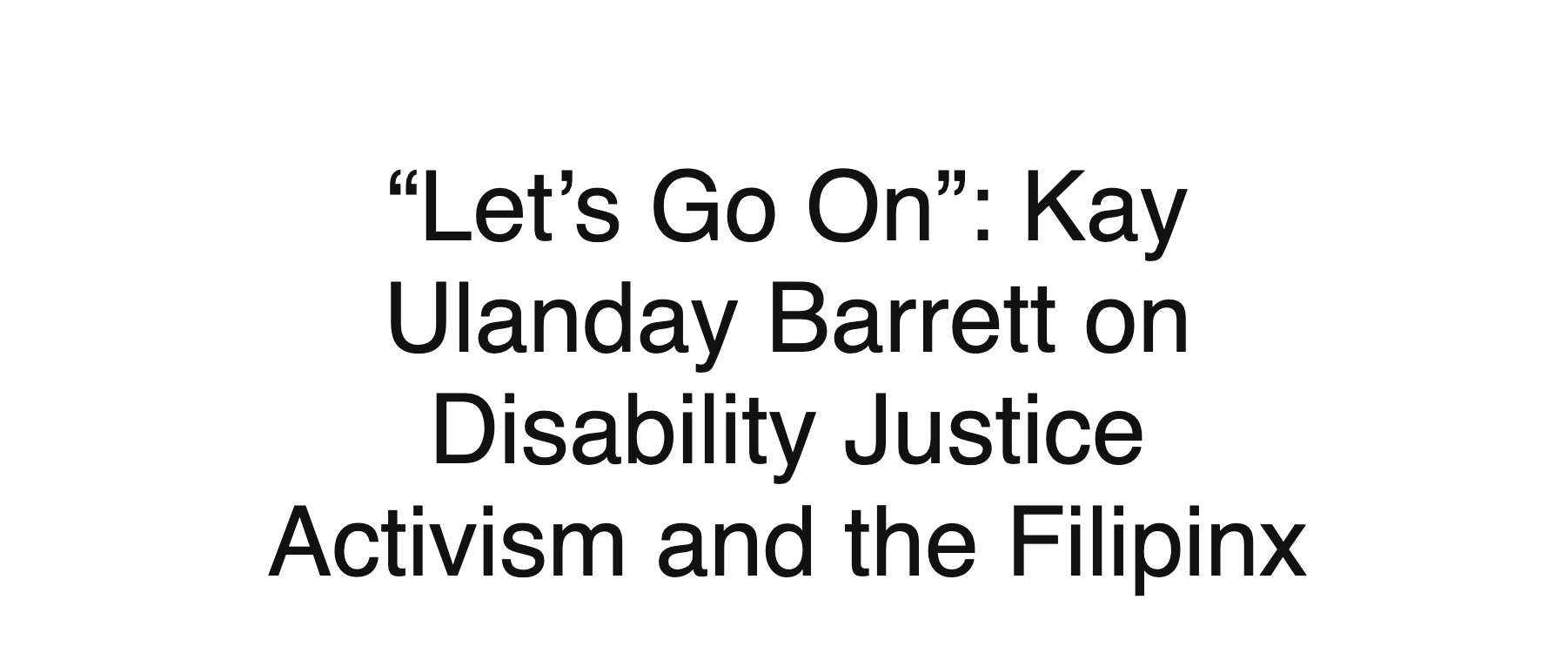Interview by Alton Melvar M Dapanas for smoke and mold
ISSUE 11: DISABILITY JUSTICE
KAY ULANDAY BARRETT
CONTINUE TO READ FULL INTERVIEW HERE
“It was confusing and it took me time to mature into an expansive understanding of transgender and nonbinary experiences, not white-loving, skinny-abled conventions of being and belonging. I had to unlearn and relearn Black Transgender and Latine Trans legacies to help name my own.“
In The Routledge Handbook of Asian American Studies (2017), Filipinx-American performance artist, poet, and activist Kay Ulanday Barrett has been named along with, among others, Ryka Aoki, Mashuq Mushtaq, Wu Tsang, Janani Balasubramanian, Alok Vaid-Menon, Leeroy Kun Young Kang, and Zavé Martohardjono as a generation of trans Asian American political and cultural activists visibly mobilizing since the 2000s “to build social movements and living cultures that connect and energize struggles against U.S. transnational racism and white supremacy, economic exploitation, imperialism, ableism, and the cis-heterosexist binary gender/sex/sexual system.” Kay’s body of work as a poet is a testament to the intersectionalities of racial and disability justice and trans identities—in his poetry collections When the Chant Comes (Topside Press, 2016) and More Than Organs (Sibling Rivalry Press, 2020) which was a finalist at the Lambda Literary Award for Transgender Poetry.
In this conversation, I spoke with Kay on Disability Justice, trans writings across identities, and the Filipinx.
—Alton Melvar M Dapanas, September 2024
Alton Melvar M Dapanas (AMMD): I love what you’ve written in Trans Bodies, Trans Selves (ed. Laura Erickson-Schroth, Oxford University Press, 2014):
“I have always been at the cusp of different cultures. I went to a liberal university but felt surrounded by white, affluent people. This translated into the queer and transgender community. We carved queer and trans people of color (QTPOC) space, but having spaces for trans people of color was seen as too militant or as snobby, and it was dubbed as separatism or as a ‘gang approach.’”
Could you speak further about your life experience—struggles and dreams—as a trans Filipinx living with disability living in the United States?
Kay Ulanday Barrett (KUB): I grew up seeing trans people eventually in Chicago. However, at first I was raised in a very rural and white area, some would consider “country,” in conservative Michigan. I was surrounded by trees and nature, open lakes, and simultaneously around working-class white Midwestern culture. My dad was white, but ‘farmer boy and trailer park’ white. My mom was the eldest of nine from San Fabian, Pangasinan in the Philippines. The lore I was taught was that she was a rebel and a great ateh, but ran away to carve out her life, eventually being one of the first from her family to migrate to the U.S. We moved to Chicago—more Filipino, more Pinoy, just more culturally nourishing for the both of us. In Chicago, whether in Albany Park or Logan Square where I grew up, there were Trans people embedded in the community—playing mahjong, hanging out with my cousins, doing the makeup for local beauty pageants. My life was not ever void of transness and even my favorite tita, Tita Alby (not blood-related), a retired pageant queer turned makeup and hair stylist, was at my major events like birthday parties, recitals, etc.
The plot twist is that as I came out as a dyke, then queer, and then, as transgender, my mom had a big struggle with associating gender and sexuality directly with her own worth as a mother. She faced a lot of backlash from Filipino organizations she was in as a leader at Chicago’s Rizal Center. She built community in executive board positions in Dagupan and United Pangasinan organizations, where she dedicated much of her free time. My college years ushered in a bravado in me that made me almost too flashy as a Queer and Trans person. Like my nanay, I was very brash and proud of my cultures, and for Queer and Filipino cultures to be symbiotic, for her it felt like disruption of The American Dream. From 2003 to 2010, I was a coordinator for Filipina organizations such as Gabriela Network and founded one of the first LGBTQ Filipin@ Caucuses before it became affiliated with BAYAN USA.
In Chicago, I was raised by queer cis women and cis women of color who openly honored my Transness, worked in allyship, and challenged the larger structures of national democratic movements in the U.S. In university, my professors were Dr. Ann Russo, Dr. Francesca Royster, and Dr. Laila Farah who fueled my poetics and performances as political praxis. My mentors included organizers and educators like Rhoda Rae Gutierrez, Riza Belen, and Lani Montreal, who melded Pinay politics and organizing with cultural elements in theater and writing poetry. Nothing was compartmentalized and that truly helped me season my political and cultural practices today.


